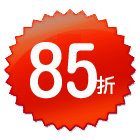Editorial Preface
When different cultures made contact, language was naturally the primary medium used in the exchange, therefore dictionaries or grammar books compiled by persons fluent in both languages would serve as valuable materials to comprehend the history of interaction with a foreign culture. Ever since the Spaniards arrived in Manila in 1571 and got in touch with the Chinese, people from both parties have been mutually learning the each other’s language and edit dictionaries and grammar books. The two parties carried different motives: the Minnan merchants, whom the Spaniards called Sangleyes, were eager to conduct business with the barbaric Foranji; on the other hand, the Spanish wished to learn more about China and evangelize the Chinese. Such documents were rich cultural assets for their historical and linguistic value.
Through acquiring image rights and making transcriptions, this Hokkien Spanish Historical Document Series project seeks to publish precious extant Hokkien-Spanish dictionaries and grammar books in the world. These documents included the Dictionario Hispanico-Sinicum held in University of Santo Tomas of the Philippines; the Arte de la Lengua Chio Chiu held in University of Barcelona; the Foranji Huaren Huabu and letters among the Philippine Chinese Manuscripts collected at the Herzog August Library in Germany, the Dictionarium Sino Hispanicum held in Angelica Library in Rome, Italy; and the Bocabulario de lengua sangleya por las letras de el A.B.C. held in the British Library. By publishing these manuscripts, we hope to aid the academic effort of reconstructing the history of Hokkien-Spanish bilateral interaction (and, in some cases, including the Filipinos as the third party) where the exchange of language and culture occurred.
Before this project, as scholars we did not share the same field of research, but with support from the Chiang Ching-Kuo Foundation, we eventually stepped into this treasury together. We got to meet diligent precursors and companions, and thanks to their generous advices our visions were broadened.
Therefore, regarding the publication of this document series, we must first thank the Chiang Ching-kuo Foundation and the Tsao Yung-ho Foundation of Culture and Education for being our major and secondary sponsors, respectively. We are grateful that Dr. Shu-min Huang, Dr. Yi-Long Huang and Dr. Hsueh-chi Hsu were willing to write forewords of recommendation for the series. We must also express our gratitude to the following persons for the guidance and help they offered: Dr. Kuo-hsing Hsieh, Dr. Ying-Chun Tsai, Ms. Tsui-yin Sung, Dr. Kuo-tung Chen, Dr. Kai Zhang, Dr. Xiping Zhang, Dr. Guo-Ping Jin, Dr. Kai-Jian Tang, Dr. Keiichi Uchida, Dr. Chinfa Lien, Dr. Yueh-chin Chang, Dr. Henning Kloter. Dr. Luisa Shu-Ying Chang, Dr. Peter Kang, Dr. Hui-Ling Yang, Dr. Manel Olle, Dr. Honghoan Sia, Dr. Li-Mei Liu, Dr. Ying Cheng; friends including Dr. Neus Verger Arce, Dr. Marina Ruiz Fragas, Dr. Esther Gonzalez Perez, Dr. Wei Jiang, Dr. Ubaldo Iaccarino, Dr. Montserrat Po-Jung Chen, Dr. Chiao-In Chen, Dr. Miguel A. del Rio, Dr. Kuo-Sheng Wu, and Dr. Hung-Yi Chien. They have contributed to this project in various ways, and without them the readers might have to wait for five to ten more years, or even miss the opportunity to witness these valuable documents. As a result, if this series indeed benefited the advance of studies related to Sinology or the history of Hokkien-Spanish exchange of language and culture, we ask the readers to honor these names.
Finally, we are especially grateful to National Tsing-Hua University and the Institute of History, Academia Sinica for providing us excellent research environments and financial support, so that we could publish these precious documents.
Fabio Yuchung Lee, Tsung-jen Chen, Regalado T. Jose, Jose Cano Ortigosa

